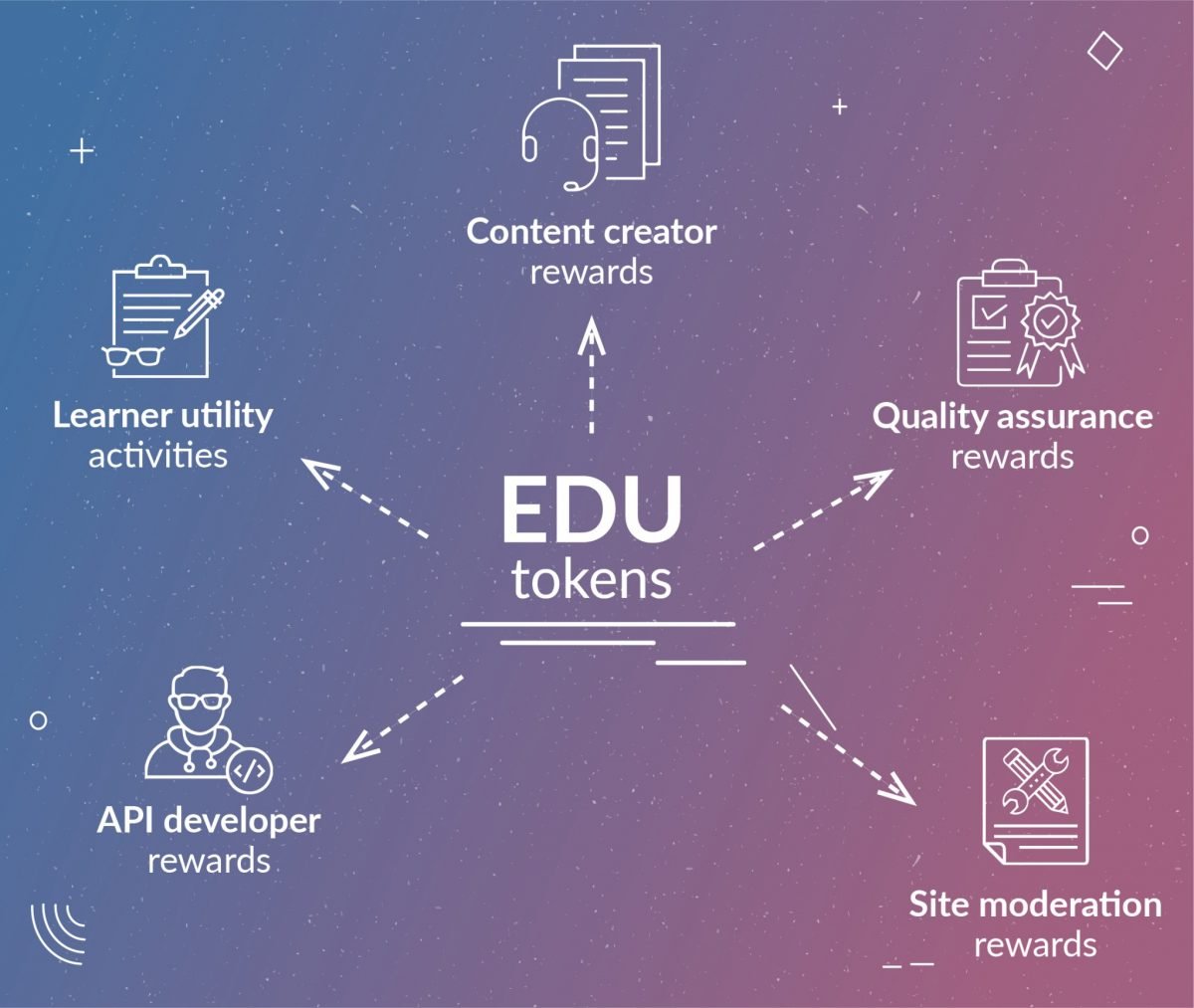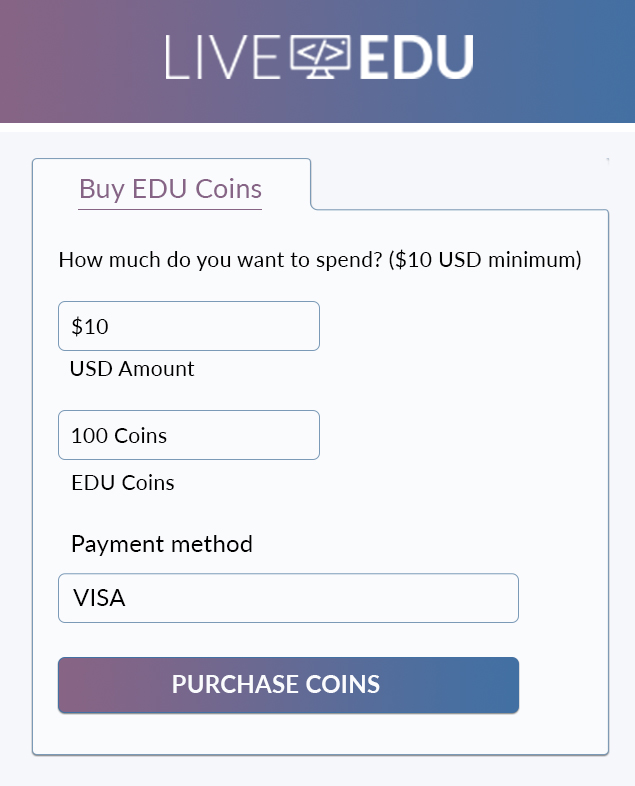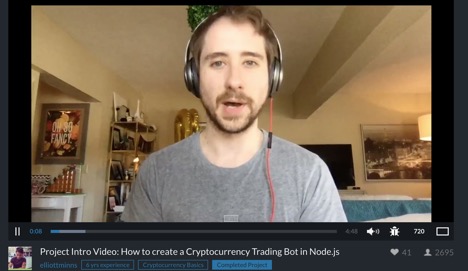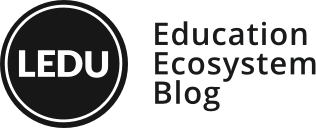
In the whitepaper we explained the token utility model and mechanics underlying the EDU tokens. The LiveEdu ecosystem consists of two networks, namely the internal ecosystem and the external ecosystem. The internal ecosystem participants are project creators (content creators), viewers (learners), community moderators, project quality moderators, and LiveEdu API application developers. The external ecosystem participants are businesses, schools, libraries, colleges and other online education companies. For the purpose of this article, we will explain how Education (EDU) tokens are used in the internal network. Note that we use the term “coins” instead of “tokens” when dealing with end users.
Payment Method
EDU coins will replace fiat as the main payment method by users for subscriptions and donations. Subscription prices on LiveEdu will be denominated in USD$ and not EDU units. Viewers cannot use fiat, BTC or ETH directly on LiveEdu. They must first buy EDU coins and then spend them for activities they do on site. The total number of coins a user will get at the time of purchase will depend on the EDU coin market price.

This is how things will work using an example:
Jeff signs up for an “ALL” subscription tier on LiveEdu and this costs $24.99 per month. Each month, LiveEdu will bill his credit card and allocate him 250 EDU coins. These coins will show up on his dashboard and he spends them based on activities he undertakes. For each activity he undertakes a certain number of coins are billed from his total:
- downloading project files,
- voting on projects,
- submitting project requests,
- requesting custom projects,
- sending personal Q&A to project creators,
- donations
Project Creators Rewards
Project creators will be rewarded EDU coins as partial compensation for their work. Thirteen percent (13%) of all coins, minted for the purpose of this ICO, are reserved for them and will be distributed over a 3-year period until all project creator coins are allocated.
Example: Elliot is a project creator on LiveEdu. He receives a base of 2000 EDU coins for creating content on LiveEdu. He is then given additional coins based on how many people watch his project and download the files.

Learner Activities
Learners on LiveEdu will be rewarded for each positive learning activity they complete.
Example: Tim is a learner on LiveEdu. The more activities he completes on LiveEdu the more he is rewarded. He receives 0.0005 coins as a reward for watching lives streams or completing any of these other activities:
- watching project video playlists,
- total monthly view time,
- submitting premium project suggestions,
- inviting friends and following projects.
Quality Assurance and Site Moderation Rewards
Quality assurance includes:
- reporting bugs,
- technical streaming issues,
- video quality issues and content moderation.
LiveEdu users will be allocated tokens for each quality assurance activity. Quality assurance is important as it improves user experience for all learners and content creators.
Example: Nguyen is a quality assurance moderator. When he reports bugs on the network he is given 0.01 coins as a reward. He will also be rewarded for ensuring that Elliot (project creator) continues to create high quality content for Tim (learner).
API Ecosystem Developer Rewards
EDU tokens will be allocated to developers for each application developed on top of the LiveEdu API, once it is deployed and used by at least 1000 end users. The best apps and bots will be endorsed by LiveEdu and shared to all LiveEdu users.
Example: Nguyen (quality assurance moderator) is also an API developer in his spare time. He creates a bot to help answer simple user questions that he constantly gets. Nguyen is then rewarded for this bot with 30000 coins, if it is used by over 1000 end users.







